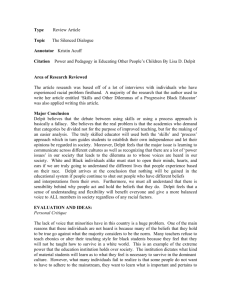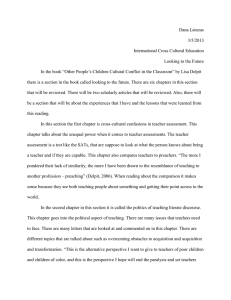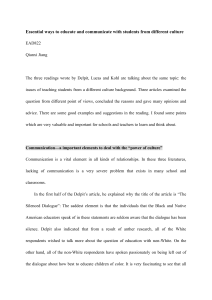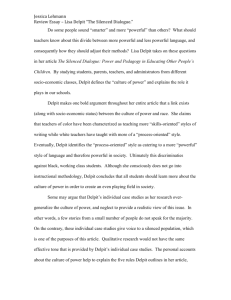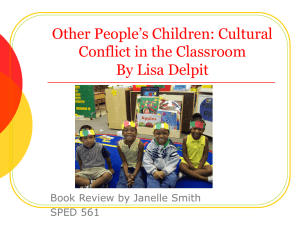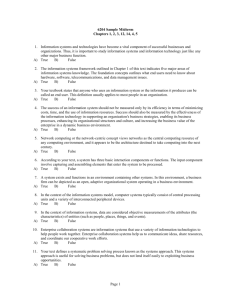Other People's Children
advertisement
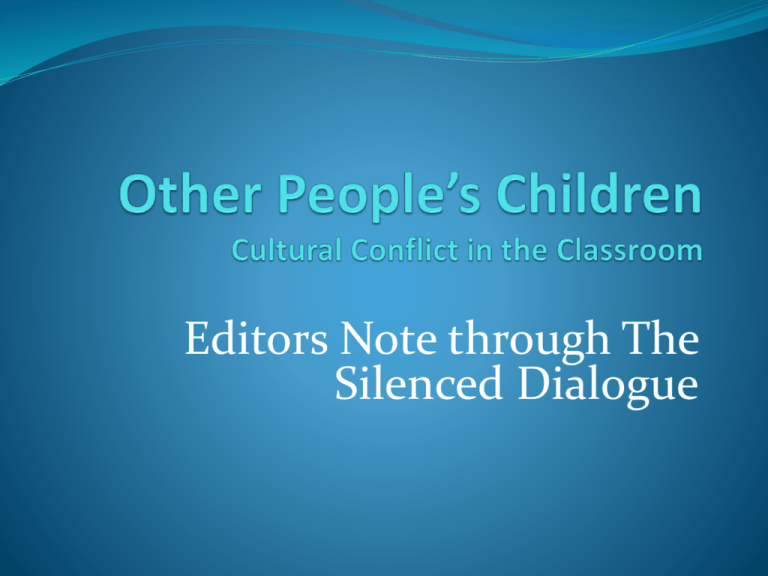
Editors Note through The Silenced Dialogue Editors Note Lisa Delpit was a teacher when she began writing this book. This was the first book edited by Ellen Gordon Reeves, she said this book gave her the first “Aha” moment of her life. She said that as a teacher herself this book gave her the clarity to see that she had not been serving the children in her classrooms to the best of her ability, she felt that she didn’t know how to teach other s with different racial, religious, and socioeconomic backgrounds. This book showed her the path to a teaching style that would serve all children equally. Acknowledgments This was the first book written by Lisa Delpit. She was writing this book while working full time as a teacher and being a single parent to a five year old. She thanks the people who helped watch her child and the people who helped develop her writings into this book. Introduction to the 2006 Edition Lisa Delpit started writing this book when her child was five years old, between first and eleventh grade her child had attended 9 schools. She struggled to find a school that would make sense for her daughter. Since she began writing this book No Child Left Behind had been enacted which mandated more standardized testing of children, this has forced the teachers and school system to adapt in a negative way. Most schools are teaching toward the test instead of teaching children through the natural flow of teaching and learning that has proven most effective. Controversies Revisited The Controversies Revisited section of the book discusses her time in teacher training at University of Alaska, Fairbanks. This is where she met two types of people the conservative traditionalists who would see themselves as “the upholders of traditional academic standards.” The contrasting group was the anthropologically oriented liberals who “saw their role as creating more opportunities for Native Alaskans to become certified to teach in their own village communities.” Controversies Revisited (cont.) This is where she saw teachers being taught to focus on their own demographics and not being taught about other cultures and the standards required outside of their cultural bubbles. She saw that this was an area that needed improvement if there was ever going to be educational equality. Skills and Other Dilemmas of a Progressive Black Educator The section deemed “Skills and Other Dilemmas of a Progressive Black Educator” discussed her own upbringing and education and how people acquire dialect from interaction with others not through correction. She also discusses the writing approach to literacy and the importance of fluency over correctness. She also discusses how when discussing interaction that we know not to assume that the “voices of the majority speak for all.” The Silenced Dialogue; Power and Pedagogy in Educating Other People’s Children Delpit begins by discussing how teachers and parents of differing races “Don’t really want to hear what you have to say.” This is what creates the Silenced Dialogue. She also discusses the debate of skills over process and the culture of power. She discusses how teachers are in the ultimate position where they can listen and participate to teach our children how to be good listeners and develop into good people.
